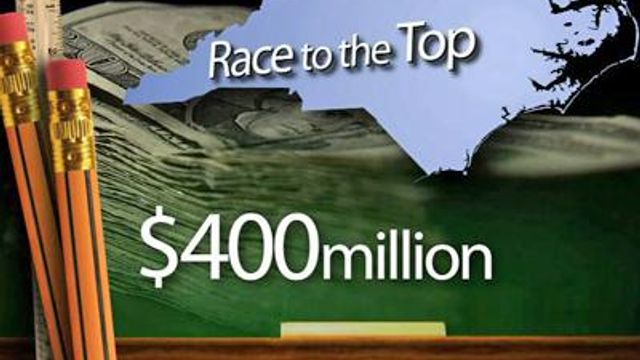N.C. among 'Race to the Top' grant winners
North Carolina will receive about $400 million as a winner in the second round of the “Race to the Top” school reform grant competition, Gov. Beverly Perdue said Tuesday.
Posted — UpdatedThe money, part of $4.35 billion being given out nationwide, will pay for recruiting and retaining quality teachers and administrators; a turnaround plan for low-performing schools; and technology for assessing students’ needs, Perdue said.
The money “will give us the resources to more aggressively implement our plan to ensure that all of our children graduate ready for a career, college or technical training,” Perdue said in a statement. “It won’t matter where they live; it won’t matter what their school looks like; it won’t matter what their parents do for a living.”
North Carolina was one of nine states and the District of Columbia to receive money in the second round of the competition. The other winners were: Florida, Georgia, Hawaii, Massachusetts, Maryland, New York, Ohio and Rhode Island.
"This is a once in a decade opportunity for us to move faster and further," said June Atkinson, state schools superintendent.
The Tar Heel State missed out when first-round winners were named in March, as only Tennessee and Delaware were selected to share $600 million. In May, Perdue and the General Assembly changed state law to adopt federal guidelines on how local school districts could retool low-performing schools.
Those changes gave local education leaders four options to improve more than 130 continually low-performing schools — those where less than half of the students have failed end-of-grade or end-of-course tests in two of the past three years.
The biggest change would allow districts to “restart” a typical school by giving it the same flexibility as a charter school without making it independent from the district. Charter schools are exempt from many rules of most public schools and can test innovative learning techniques or focus more on children at risk of failure.
Other methods the State Board of Education could authorize local districts to use to help continually low-performing schools include increasing learning time and improving teacher performance; removing the principal and many teachers; and simply closing the school.
The winners named Tuesday will divide a remaining $3.4 billion. Another $350 million is coming in a separate competition for states creating new academic assessments.
“This will allow North Carolina to continue the tradition of being a leader in public education,” Atkinson said.
The historic program, part of President Barack Obama’s economic stimulus plan, rewards states for embarking on ambitious reforms to improve struggling schools, close the achievement gap and boost graduation rates.
• Credits
Copyright 2024 by WRAL.com and the Associated Press. All rights reserved. This material may not be published, broadcast, rewritten or redistributed.






